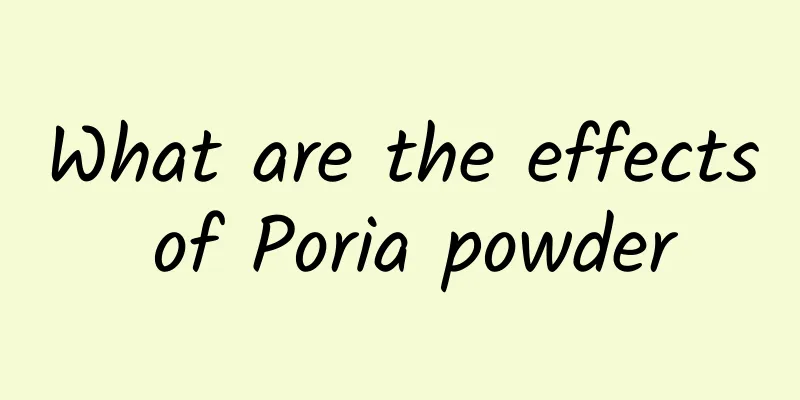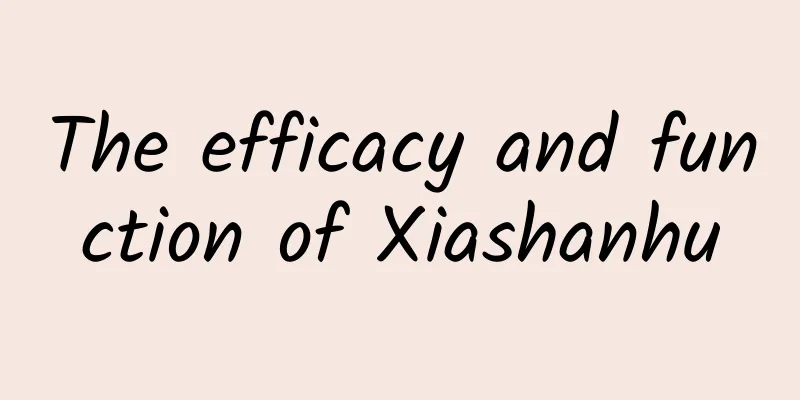Can Ginkgo biloba leaves be taken for a long time?

|
Ginkgo leaf is a drug that can improve brain blood circulation and protect brain cells. It can prevent diseases such as cerebral thrombosis, angina pectoris and myocardial infarction. Having said that, ginkgo leaves should not be taken for a long time. Although Ginkgo biloba leaf is a traditional Chinese medicine with relatively few side effects, long-term use will cause patients to develop a certain dependence on the drug and even affect the patient's physical health to a certain extent! Can ginkgo leaves be eaten for a long time? Ginkgo leaves have very few side effects, so even if you take them for a long time, there will not be much harm. However, medicines cannot be taken for a long time, so it is recommended that patients formulate a course of treatment based on their own condition. Effects Ginkgo leaves can increase cerebral vascular flow, reduce cerebral vascular resistance, improve cerebral vascular circulation function, protect brain cells from ischemic damage, dilate coronary arteries, prevent angina pectoris and myocardial infarction, inhibit platelet aggregation, prevent thrombosis, remove harmful oxidative free radicals, enhance immunity, and have anti-cancer and anti-aging functions. It has miraculous effects in treating coronary heart disease, angina pectoris, cerebral arteriosclerosis, senile dementia, hypertension and other diseases. Ginkgo biloba lactones contained in Ginkgo biloba leaves can selectively resist platelet activating factor. Platelet activating factor is a strong endogenous active substance in the human body that can induce platelet aggregation and thrombosis. It is an invisible killer that induces cardiovascular and cerebrovascular diseases, especially stroke and myocardial infarction. It is very dangerous. Ginkgo biloba lactone is the nemesis of platelet activating factor. Ginkgo leaf extract has the effects of regulating blood lipids, inhibiting platelet aggregation, dilating cerebral blood vessels, scavenging free radicals, reducing lipid peroxidation, etc., and protecting brain tissue from damage caused by ischemia and hypoxia. It can be used clinically to treat cerebral ischemia, cerebral infarction, sequelae of brain trauma, senile brain dysfunction, etc., and has a good therapeutic effect. Function and indications Clinically, Ginkgo leaves can be mainly used for coronary heart disease, angina pectoris, cerebral thrombosis, cerebral infarction, sequelae of stroke, hyperlipidemia, thick blood viscosity, arteriosclerosis, hypertension and the dizziness, headache, vertigo, tinnitus, blurred vision, memory loss, fatigue, chest tightness and shortness of breath, insomnia and forgetfulness, limb numbness or drowsiness, and abnormal mood caused by them. |
<<: What are the eating methods and taboos of Panax notoginseng leaves?
>>: Can Atractylodes macrocephala help lose weight?
Recommend
The milk here has been poisoning people for more than 100 years, and the root cause is still unknown
When you arrive in a new place, your safety will ...
May peace be with you! A 6.9-magnitude earthquake occurred in Menyuan County, Qinghai
The China Earthquake Networks Center officially d...
The efficacy and function of Callicarpa arborescens
Many people choose Callicarpa arborescens because...
Flash explosion! 4 seriously injured and 4 slightly injured! You must know these about dust explosions
Mention explosion The first thing that comes to m...
What are the effects of drinking wolfberry soaked in water?
Wolfberry is a very common Chinese herbal medicin...
Can Coptis chinensis really lower blood sugar?
Coptis chinensis is a very familiar Chinese herba...
Japan's Tourism Industry - Who is choosing package tours?
Organizing a trip can be a stressful affair. Ther...
What exactly happened when I blacked out after drinking?
© Getty Images Leviathan Press: Almost all of my ...
What are the effects and functions of pollen and how to eat it?
We all know that pollen is collected by bees. Dif...
What are the suitable groups for wolfberry?
Wolfberry is a medicinal material with high medic...
The efficacy and function of egg ginseng
What are the functions of egg ginseng? As a tradi...
The efficacy and function of Clematis
Medicine is very common, and different medicines ...
Can donkey-hide gelatin help beauty?
In our daily life, we often hear the word donkey-...
Latest research: Will intermittent fasting cause baldness? Scientific maintenance methods revealed!
As a popular diet, intermittent fasting has attra...









